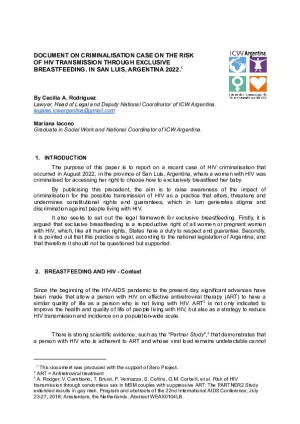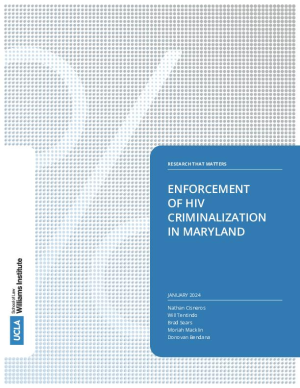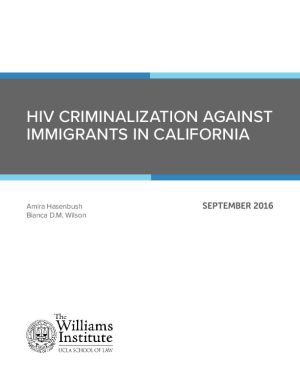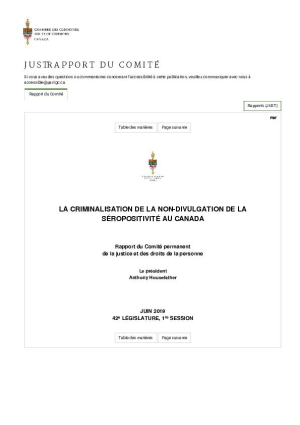Document on criminalisation case on the risk of HIV transmission through exclusive breastfeeding
The purpose of this paper is to report on a recent case of HIV criminalisation that occurred in August 2022, in the province of San Luis, Argentina, where a woman with HIV was criminalised for accessing her right to choose how to exclusively breastfeed her baby.
Please note this is a DEEPL translation of the Spanish report.
Enforcement of HIV Criminalization in Maryland
Using data obtained from the Maryland State Administrative Office of the Courts, this study from The Williams Institute examines the enforcement of HIV criminalization laws in Maryland.
Highlights:
- Nearly two-thirds of U.S. states and territories have laws that criminalize people living with HIV.
- Black people, especially Black men, are overrepresented in HIV-related crimes in Maryland.
- Over two-thirds of people charged with HIV-related crimes were charged in Baltimore City, Montgomery County, or Prince George's County.
HIV Criminalization Against Immigrants in California
The Williams Institute researchers analyzed California Criminal Offender Record Information (CORI) data on HIV offenses in California to explore the demographics and experiences of foreign born individuals as compared to their U.S. born counterparts. While only 30% of immigrants in this data set had immigration proceedings recorded in their criminal history, among them, one in four had those proceedings initiated after and HIV-specific incident. This emphasizes the impact that HIV criminalization can have on the lives of noncitizen immigrants above and beyond the impact on their citizen peers.
Pas de transmission du VIH par des mères dont la charge virale était indétectable pendant l’allaitement en Tanzanie rurale
Un bref rapport sur une pratique clinique en Tanzanie qui n'a révélé aucune transmission du VIH par les mères qui continuaient à recevoir des soins et dont la charge virale était indétectable pendant l'allaitement. Ils concluent : "L'allaitement maternel représente un risque très faible lorsque les mères adhèrent au traitement antirétroviral."
La criminalisation de la non-divulgation de la séropositivité au Canada
Rapport du comité permanent de la justice et des droits de la personne. Recommande de modifier le Code criminel de sorte que la non‑divulgation d’une maladie infectieuse (dont le VIH) soit passible de poursuites pénales uniquement lorsqu’il y a bel et bien eu transmission, et que les cas de transmission réelle fassent l’objet de poursuites uniquement en vertu de cette infraction.





